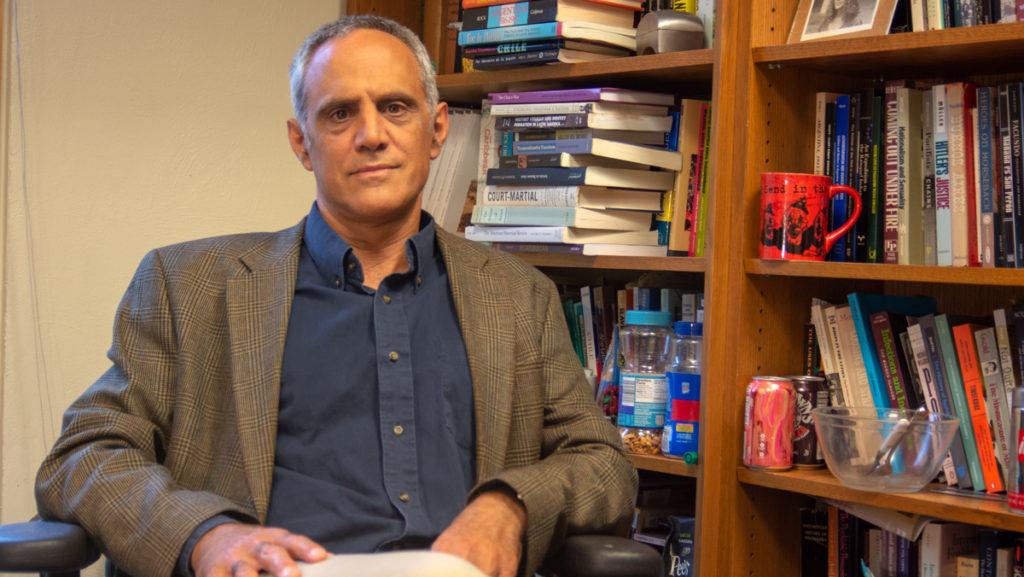Because Argentina only returned to constitutional rule in 1983, and government documents from past dictatorships were only recently declassified, the country is still investigating and learning to move forward from its past.
One Ithaca College professor spent three weeks over the summer researching multiple civilian and military archives while visiting Argentina, studying the trials of former Argentine military conscripts — men who were forced to do military service during prior dictators’ — regimes. Jonathan Ablard, associate professor in the Department of History, visited Argentina using his Faculty Excellence Summer Research grant.
Opinion Editor Meredith Burke spoke with Ablard about his experience in Argentina collecting research and studying conscripts.
This interview has been edited for length and clarity.
Meredith Burke: For our readers, could you give a brief overview of your research?
Jonathan Ablard: My research was on the social history of the military before the 1930s. … I’ve been looking at obligatory service — the draft — and how different sectors of Argentine society talked about the draft, did the draft, resisted the draft, accepted the draft [and] escaped the draft. … I went to look at military archives, and I was specifically looking for trials of conscripts who were arrested for crimes like insubordination, desertion, things like that. So I went to a wide range of military archives — the army archive, two different navy archives, the army officer’s club … and then I also went to civilian archives and libraries.
MB: Did you notice any trends in these trials?
JA: There’s an expression that’s “military justice is to justice as military music is to music,” which basically means that military justice, traditionally, is more about maintaining discipline and less about a careful review of evidence and determination of guilt or innocence. So I found that in the trials before 1930, the approach was that men who were accused of desertion or insubordination were found guilty, almost always. … That was the pattern that I found, but what was interesting to me with the military trials was the way different sectors of civil society resisted, [accepted] or petitioned in favor of the men who had been convicted.
MB: Were there any groups who deserted the military more so than others?
JA: If you were wealthy enough, you simply could bribe somebody to give you a medical exception so you didn’t have to do the military service. If you were poor, you were more likely to just have to desert or escape getting conscripted in the first place. … One of the things that’s interesting about the draft in Argentina is that it existed in a time of peace. The reason I was interested in the draft is because the draft was not really created to defend the nation. It was created to create citizens, to make men into Argentines [and] to train them in patriotism.
MB: How did the recent declassification of Argentine documents affect your research?
JA: In the last decade, the government — particularly the previous president — began to declassify documents from the last dictatorship, [which] includes police records, army [and] navy records. A lot of material is being declassified — some of it is being moved to civilian archives, and some of it is remaining in military archives, and they’ve basically professionalized the archives and made them available to researchers. But it varies from archive to archive … there are rules, but how it gets implemented on the ground varies. … The trials of men who deserted during the last dictatorship — those are in a civilian archive. Those are interesting to look at because I have mostly worked in the period before 1930, so I’ve mostly worked on people who are dead, but these are the files of men who are most likely still alive. I had to follow certain protocols like I couldn’t take pictures of the documents [and] I had to sign a form promising that I would change all identifying features of anyone discussed in the document. … The other thing was that the documents, though they were of interest to me as a scholar, they are also important to [men who survived military service] and their families. Because many people … have gone back to the archives to find out what happened to their family members. … That’s kind of a reminder of the different meanings this project can have for different people.
MB: How do you plan to continue your research?
JA: I’m currently teaching a class on Argentina, and one of the things we’re going to do is Skype sessions with colleagues and friends in Argentina. Because one of the things I learned on this trip — or I developed it more — was a better understanding of some of the new historical trends in Argentina. There’s this really important re–evaluation of the last dictatorship, and so I organized a panel for a conference in May that’s going to be U.S. and Argentine scholars talking about some of the new approaches to understanding the dictatorship. I’m also going to present a paper for that conference on desertion.














